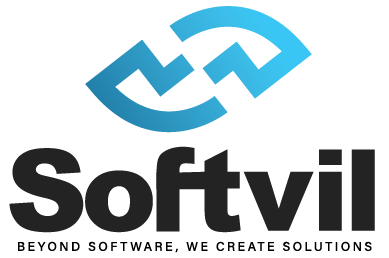Introduction
The demand for offshore software development continues to grow as businesses look to reduce costs, accelerate timelines, and access a global pool of skilled professionals. However, while this strategy offers numerous benefits, it also brings with it significant security challenges. Companies outsourcing critical projects to offshore software services must navigate risks such as data breaches, intellectual property theft, and compliance issues.
For organizations, including offshore software companies in Singapore, addressing these challenges is critical to safeguarding sensitive information and ensuring successful project outcomes. This article delves into the primary security risks associated with offshore development and explores best practices to mitigate these challenges effectively.
The Landscape of Offshore Software Development

Offshore software development refers to the delegation of software-related tasks to teams or companies located in other countries. This model is particularly appealing due to its cost efficiency, access to specialized expertise, and ability to scale operations rapidly.
Software companies in Singapore, for instance, leverage offshore software services to streamline operations, enhance innovation, and remain competitive in the global market. However, the distributed nature of offshore software development presents unique security risks that demand proactive strategies.
Key Security Risks in Offshore Software Development

Data Breaches and Information Leakage
The transfer and storage of sensitive data across borders can expose businesses to significant risks. Offshore software companies in Singapore and other regions handling confidential customer information or intellectual property are particularly vulnerable to unauthorized access or data leaks.
For example, a healthcare provider outsourcing patient data management might inadvertently expose sensitive records if the offshore team lacks robust cybersecurity measures.
Intellectual Property Theft
Intellectual property (IP) theft is a major concern when working with offshore partners. Without proper legal and technical safeguards, proprietary software, algorithms, or business ideas can be copied or misused.
A startup outsourcing the development of an innovative app to hire an offshore development team may face the risk of its unique concepts being replicated without authorization.
Introduction of Malicious Code
Sharing source code with an external team introduces the potential for vulnerabilities or malicious elements to be embedded within the software. This risk is particularly significant for industries such as finance or defense, where compromised software can have catastrophic consequences.
For instance, a financial institution outsourcing the development of a payment gateway must ensure that its offshore software services provider adheres to strict secure coding standards.
Compliance Challenges
Software companies in Singapore and other businesses operating in highly regulated sectors face complex compliance requirements. Outsourcing to an offshore development team may complicate adherence to data protection regulations such as GDPR, HIPAA, or local laws governing sensitive data.
Failure to comply with these regulations can result in hefty fines, reputational damage, and operational disruptions.
Communication and Cultural Barriers
Effective communication is critical to managing security risks, but cultural differences, language barriers, and time zone gaps can lead to misaligned expectations and misunderstood project requirements. These challenges can impact security protocols and jeopardize project integrity.
Best Practices for Mitigating Security Risks

Comprehensive Vendor Evaluation
Before engaging an offshore software services provider, conduct thorough due diligence to assess their capabilities and reliability.
- Evaluate Reputation: Research the vendor’s track record through client reviews, case studies, and industry reputation. Offshore software companies in Singapore with a proven history of delivering secure and high-quality solutions are preferable.
- Certifications and Standards: Ensure the vendor complies with internationally recognized standards like ISO 27001 or SOC 2.
- Compliance Alignment: Verify that the provider adheres to relevant data protection regulations, especially if handling sensitive information.
Robust Contractual Agreements
Clearly defined contracts are essential to mitigating risks in offshore software development.
- Non-Disclosure Agreements (NDAs): Enforce NDAs to protect sensitive information and ensure confidentiality.
- Ownership Clauses: Specify intellectual property rights and responsibilities in the contract to prevent unauthorized use of proprietary information.
- Liability Provisions: Include clauses that hold the offshore vendor accountable for any security breaches.
Secure Development Practices
Adopting secure software development practices is critical to minimizing vulnerabilities.
- Secure Coding Standards: Ensure that the offshore team adheres to established secure coding practices.
- Regular Testing: Conduct frequent vulnerability assessments and penetration testing throughout the development lifecycle.
- Encryption Protocols: Mandate the use of encryption for data storage and transmission to prevent unauthorized access.
Effective Communication Strategies
Building a collaborative and transparent relationship with your offshore development team can mitigate security risks.
- Establish Clear Communication Channels: Use secure platforms for communication and data sharing.
- Regular Updates: Schedule frequent meetings to monitor progress and address potential issues.
- Cultural Sensitivity: Foster an inclusive environment to bridge cultural gaps and promote better collaboration.
Continuous Monitoring and Auditing
Ongoing oversight is essential for maintaining the security of offshore software services.
- Real-Time Monitoring: Implement tools to monitor software development activities and detect anomalies.
- Periodic Audits: Conduct regular security audits to evaluate the offshore team’s compliance with contractual and regulatory requirements.
- Onsite Visits: If feasible, perform onsite inspections to ensure adherence to security protocols.
The Role of Singapore in Offshore Software Development

Offshore software companies in Singapore play a pivotal role in the global outsourcing ecosystem. Known for their technological expertise and robust legal frameworks, these firms provide businesses worldwide with reliable and innovative solutions.
By leveraging offshore software services from Singapore, organizations can benefit from a secure and efficient outsourcing experience. Singapore’s commitment to data protection laws, such as the Personal Data Protection Act (PDPA), further enhances its reputation as a trusted destination for offshore software development.
Future Trends in Offshore Software Development Security

As technology evolves, so do the methods for mitigating security risks in offshore software development. Emerging trends include:
- AI-Powered Security: Artificial intelligence is being increasingly used to detect and respond to potential vulnerabilities in real time.
- DevSecOps: Integrating security into the DevOps pipeline ensures that security is a continuous focus throughout the development process.
- Zero Trust Architecture: Adopting a zero-trust approach enhances security by requiring strict identity verification for every user or system accessing resources.
For software companies in Singapore and elsewhere, staying ahead of these trends will be crucial to maintaining a competitive edge in the global market.
Conclusion
Offshore software development offers unparalleled opportunities for businesses to scale operations, reduce costs, and tap into global expertise. However, these benefits come with security risks that demand careful attention and proactive management.
By partnering with trusted offshore software companies in Singapore, implementing robust security measures, and fostering transparent collaboration with offshore teams, businesses can navigate these challenges effectively.
As the demand for offshore software services grows, adopting best practices and leveraging emerging security technologies will ensure that organizations can confidently hire offshore development teams and achieve their strategic goals without compromising on security or quality.
FAQs
Data breaches, IP theft, compliance issues, malicious code, and communication barriers.
Use NDAs, clear contracts, and work with trusted offshore software services providers.
They excel in data security, regulatory compliance, and high-quality solutions.
Partner with compliant vendors and conduct regular audits.
About Softvil
Softvil is a leading technology solutions provider specializing in innovative software development and IT services. With a focus on quality, efficiency, and client satisfaction, Softvil delivers tailored solutions across various industries. The company combines technical expertise with a commitment to excellence, making it a trusted partner for businesses seeking to drive growth through technology. Whether through offshore software development, managed services, or custom software solutions, Softvil empowers organizations to achieve their digital transformation goals.

